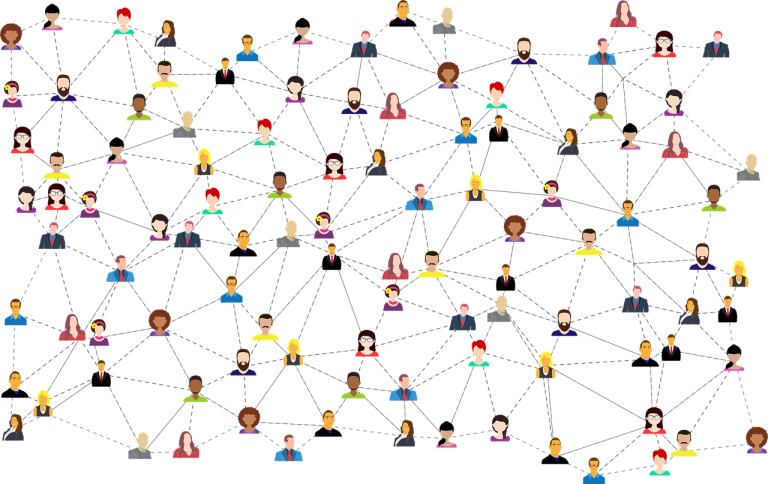How can organizations increase their profitability in the post-COVID business environment? Technology today allows companies to become more profitable by integrating automation into the modern-day workplace for better productivity. The term “artificial intelligence” isn’t just an industry buzzword anymore; it’s become mainstream in the workplace and has contributed to removing the risk of human errors that affect efficiency. One can imagine why over 90% of well-known companies are now investing in AI since the emergence of the coronavirus. While some workers are worried about robots replacing humans in the workplace, surveys indicate that 86% of CEOs called AI a “mainstream technology” in 2021. What are the ramifications?
Experts have stated that 81% of employees report how artificial intelligence has boosted productivity. Therefore, today, CEOs plan to integrate AI into their workplaces for improved business outcomes as automation can make their workforce more productive. What makes AI so useful in modern-day offices? We’ve witnessed how the implementation of artificial intelligence reduces mistakes, thereby honing the decision-making process. Its remarkable achievements involve turning complex data into understandable bits for better understanding. Now, let’s review some applications of AI in a modern workplace:
1. Learning and training
What’s the first step in a manager’s journey to implement workplace AI today? Business owners may enhance their familiarity with artificial intelligence by liaising with continuing education programs. You should pursue the artificial intelligence short course to understand AI’s business applications and also some possible strategies for integration. This six-week-long course is intended to help managers obtain valuable insights into the importance of artificial intelligence in offices in 2022. AI itself helps your employees learn better and reskill/upskill themselves for more productivity.
2. Increased productivity
Artificial intelligence makes employees more productive, statistics have indicated. Experts estimate that 40% of what salespeople do can be automated for increased productivity. Today, human agents are less prone to error when workplaces have AI-powered solutions integrated efficiently. These AI-enabled programs have reduced the wastage of time, thereby liberating employees for more business-centered tasks.
3. Accounting
We’ve established that AI handles tiresome activities efficiently and improves accuracy. Hence, artificial intelligence can enhance the productivity of your accounting department, for example, companies investing in cloud-based payroll software solutions for semi-automating complex procedures. While automation’s based on cause-and-effect, modern-day AI assesses data and learns from mistakes. That’s why organizations can implement AI-enabled solutions to perform tasks like:
- Recording information
- Cataloging transactions
- Assessing expense reports
- Correlating data from receipts to transactions
4. Reading reactions
Recent advances in technology have allowed marketers to “read” an audience’s reactions to ensure whether they’re pleased with their products or not. For instance, Microsoft introduced tools such as Affective Spotlight to recognize people’s attitudes, gestures, and facial expressions. These bots allow marketers to realize which audience members enjoyed an ad or meeting. Affect-sensing technologies have revolutionized advertising for organizations, thereby becoming imperative for integration in offices.
5. Compliance
Modern-day organizations focus on accelerating their functioning, thereby making compliance an intractable obstruction. However, artificial intelligence allows companies to automate any boring task and resolve compliance-related challenges cost-effectively. Today, you can effectively maintain workplace compliance by implementing AI solutions companywide. Thanks to RPA, companies don’t have to worry about complying with regulations as AI can future-proof your company from financial problems. Now, your company can focus more on the functions that drive its profitability.
6. Customer support
Improving customers’ experience wasn’t easier before the advent of artificial intelligence. Today, an organization has AI-powered chatbots at its disposal for interacting with customers positively. These chatbots can answer consumers’ repetitive questions and allow human agents to focus more on urgent issues. Conversely, voicebots are capable of responding to similar questions in the speech format. These AI-enabled solutions protect your workforce from being overburdened with queries.
7. Meeting transcriptions
Another real-world example of AI affecting modern-day workplaces involves tech tools used to make Zoom meeting transcriptions. The hybrid nature of post-COVID offices has forced companies to offer digital solutions such as Otter to record meetings textually. Moreover, these AI-powered tech tools can help employees schedule upcoming recordings and facilitate collaboration by sharing any notes automatically. That’s how artificial intelligence advances effective communication in organizations.
8. Human resources
Companies have encountered unparalleled conditions in the post-pandemic economy. We observed the rise of trends such as virtual recruiting while diversity and inclusion have become imperative for an organization’s continued profitability. Now, HR professionals can benefit greatly from AI solutions being integrated into the workplace. Investing in AI can help you improve the recruiting process. So, these AI-empowered hiring tools allow companies to evaluate candidate profiles and match them to the best roles according to their unique skills. That’s how artificial intelligence boosts productivity.
Conclusion
How fast is the AI market growing today? It’s estimated that business companies will have 35 AI projects underway on average this year. Unsurprisingly, the global AI industry will surpass $190 billion in market value by 2025. So what are some applications of artificial intelligence? Experts divide them into analytics, automation, and natural language processing (NLP) for boosted understanding.
Artificial intelligence enhances your workforce’s productivity while making training sessions fruitful in upskilling/reskilling your employees. Business owners should integrate AI into major operations such as HR, accounting, and customer support for better results. Moreover, you can leverage technology for performing repetitive functions. That’s why AI adoption has skyrocketed today, as 67% of companies stepped up their AI strategies last year. You’d struggle to find an increasingly successful company nowadays that hasn’t implemented AI technology. So apply it and enhance productivity at the workplace.






